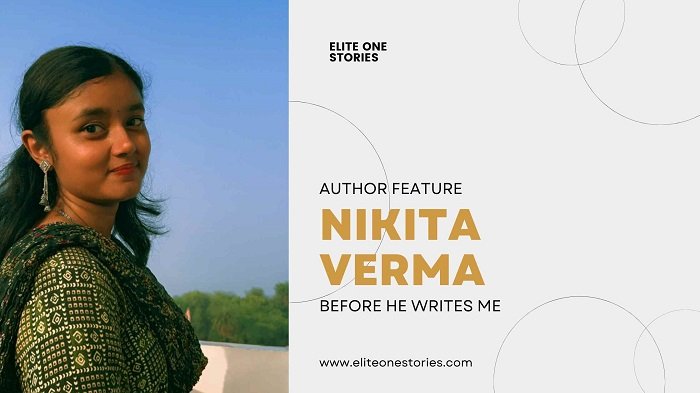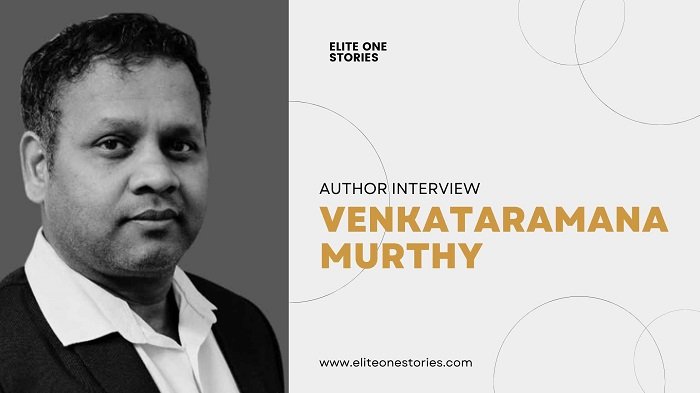At just 21 years old, Nikita Verma has already carved a distinctive space for herself in contemporary literature, bringing together poetry, narrative, and imagination with a sensitivity that feels rare in today’s fast-paced world. A literature student and a young writer whose voice carries both vulnerability and lyrical strength, Nikita writes with an honesty that lingers long after her words are read. Her book Before He Writes Me stands as a testament to this quality—a deeply personal and evocative work that blends time travel with poetry to capture the timeless ache of love and memory.
For Nikita, poetry has never been merely a form, but rather her first language of expression. She believes it is the most honest way to hold emotions, and in her writing, one can see how this conviction breathes life into every line. When asked about her inspiration to combine time travel with poetry, she explained that love across impossible boundaries called for an equally imaginative canvas. Time travel gave her characters the distance and impossibility they needed, while poetry became the bridge that carried them across worlds that could never truly meet. It is this interplay that makes the book unique—science fiction is not treated as an exercise in mechanics but as a space where the heart’s contradictions can unfold.
The story introduces readers to Aaravi, a character who exists in a future devoid of emotions. In many ways, Aaravi represents the author’s own fears about where modern society is headed. Nikita observes that even though technology connects us more than ever, we are paradoxically moving further away from vulnerability and depth of feeling. Her concern that emotions are increasingly seen as weaknesses rather than gifts finds expression in Aaravi’s sterile world, amplifying what she fears might already be happening around us. Vivaan, the other central figure in the book, offers a counterpoint with his words—his poems are written with a rawness and imperfection that make them feel profoundly human. Nikita reveals that she wrote Vivaan’s poetry as though they were unsent letters, capturing an intimacy that is both fragile and unpolished. This is perhaps why readers find themselves resonating so strongly with him—because his voice does not aim for perfection but for truth.
Though the book presents itself as a work of fiction, its emotional depth is rooted in Nikita’s own lived experiences. She admits that moments of loss and longing from her life seep quietly into the story. For her, writing this book was not just about crafting characters but also about giving shape to unspoken emotions she had carried within herself. This confessional quality of her prose and verse is what makes the book so powerful—every chapter feels like an echo of something deeply felt, even if unnamed. It is this emotional authenticity that allows her readers to connect with the characters on an intimate level, as though the story speaks to their own hidden aches.
When reflecting on the idea of changing fate for someone we love, Nikita’s answer reveals both her tenderness and her philosophical leanings. She acknowledges that love makes us reckless enough to want to alter destiny, yet she questions whether doing so would strip love of its very meaning. This complexity runs throughout Before He Writes Me. The book does not present love as simple or straightforward but as something fragile, paradoxical, and deeply transformative. In fact, Nikita herself hopes that readers walk away from the book with the reminder that love is timeless—not in its duration but in its echoes, in how deeply it changes us even after it ends.
What makes her work stand out even further is the seamless coexistence of poetry and prose. Nikita does not see them as separate practices but as two streams flowing into each other. Her novels carry a poetic rhythm and imagery, while her poems often contain narrative undercurrents. This fluidity of form gives her work its unique texture—it is not bound by genre expectations but instead guided by emotion and imagination.
Time travel, often a tricky theme to handle because of its inherent paradoxes, finds a fresh treatment in Nikita’s writing. She chooses not to focus on the technicalities of time but on the emotional realities it creates. The heart, after all, does not care for the logic of time; it only knows the immediacy of what it feels. By grounding her narrative in emotions rather than scientific accuracy, she allows the paradoxes to become part of the mystery of love instead of loopholes. The result is a story that bends time without breaking believability, precisely because its foundation rests on the universality of human feeling.
As a young author, Nikita acknowledges that the journey has not been without challenges. Writing such an emotionally charged book meant carrying the weight of grief, longing, and vulnerability through the entire process. There were moments when chapters left her drained, as though she were grieving alongside her characters. Another challenge was trusting her own voice—believing that she could take a concept as vast as time travel and render it deeply personal. But in overcoming these struggles, she has emerged with a work that not only resonates but also establishes her as a powerful new voice in contemporary writing.
The title Before He Writes Me captures the essence of the book in a way that feels both delicate and profound. For Nikita, it is about the ache of being known by someone before they have even met you. Aaravi falls in love with Vivaan through words not yet written, while Vivaan unknowingly writes her into his heart. The title embodies both a promise and a farewell, encapsulating the fragile space between time and memory where their love resides.
Nikita Verma’s work is not merely about storytelling—it is about creating spaces where emotions, however fleeting, are preserved with tenderness. With Before He Writes Me, she has given readers a book that does not just entertain but leaves an imprint on the heart, reminding us that while time may move forward, love continues to echo long after. For a 21-year-old writer to capture such complexity with grace is remarkable, and it is certain that this is only the beginning of a luminous literary journey for her.



